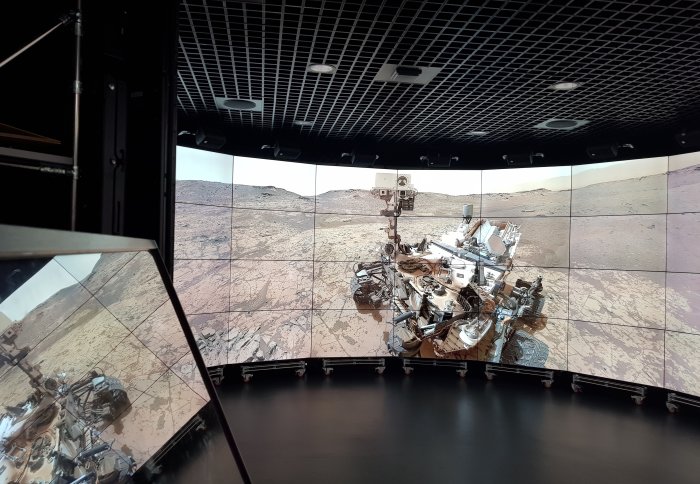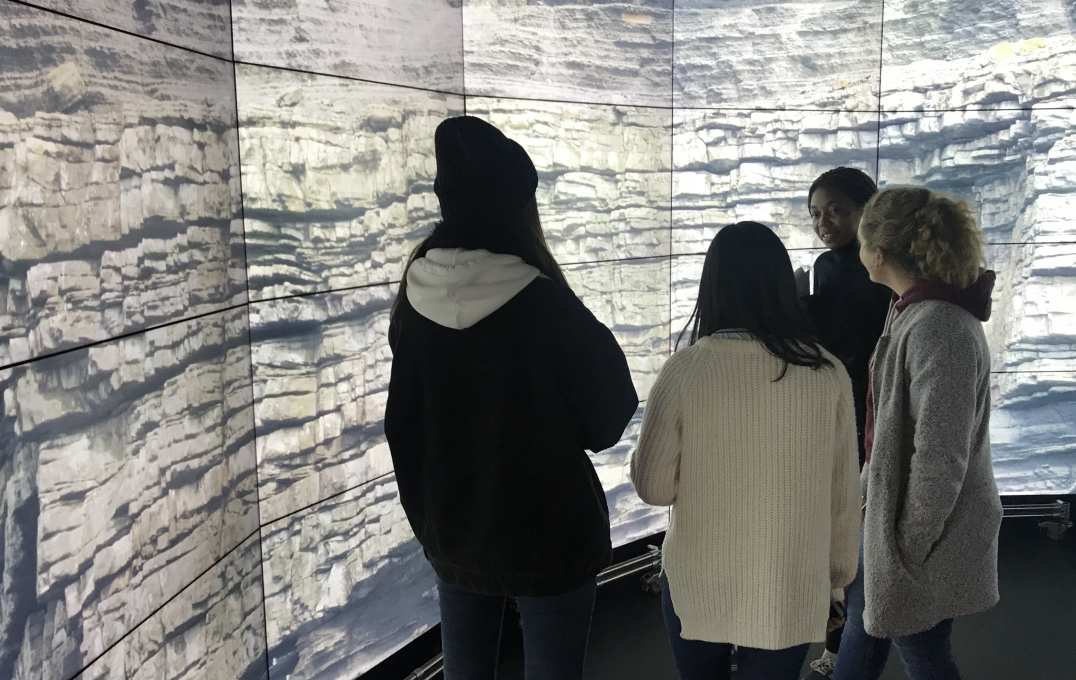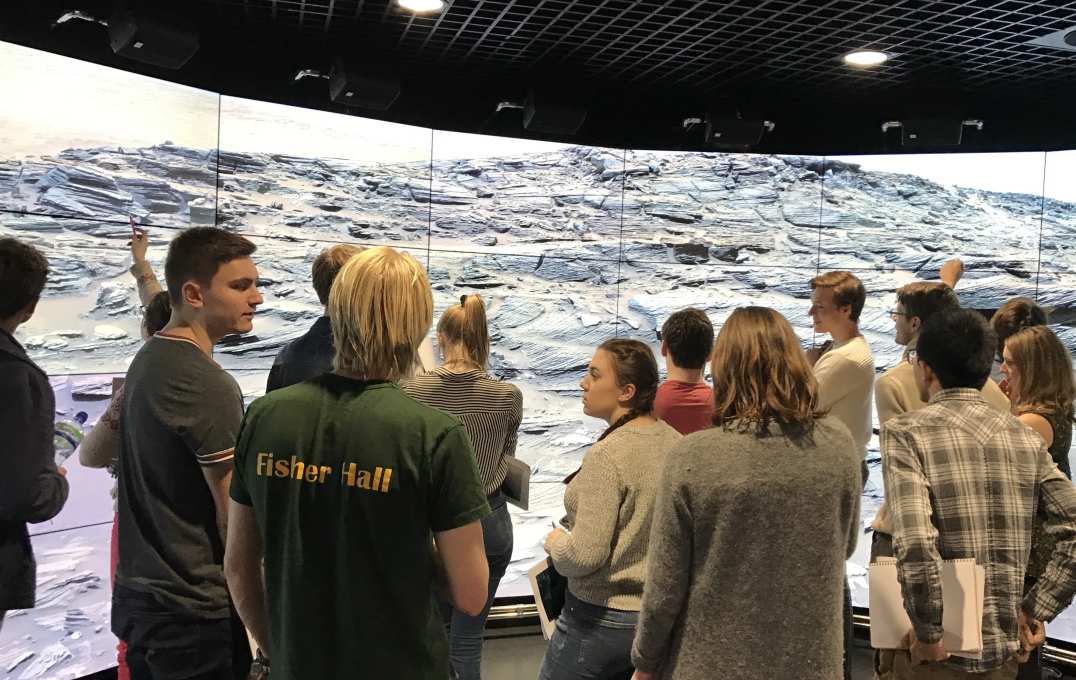New Earth and Planetary Science Undergraduate Degree Programme

The Department of Earth Science and Engineering at Imperial College London has launched a new undergraduate degree programme.
The new Earth and Planetary Science degree programme will run as both 3-year BSc and 4-year MSci degrees, beginning in September 2019.

Planetary science – the study of planets, planetary systems and the processes that form them – is an important and overlapping sister subject to traditional geoscience, and is currently receiving intense interest from the research community.
There is an abundance of active and imminent missions by a variety of international space agencies, looking out into our solar system. NASA’s OSIRIS-Rex and Japan Aerospace Exploration Agency JAXA’s Hayabusa2 spacecraft are currently in orbit around their small target asteroids, Bennu and Ryugu, and will soon collect samples to return to Earth to study the origins of our Solar System. Earlier this year, Chang'e 4, the China National Space Administration's lunar rover, successfully landed on the far side of the moon and transmitted data back to Earth for the first time via a dedicated satellite. And 2019 also saw NASA commit to returning astronauts to the Moon in the next five years.
Current active missions that ESE staff are involved in, include NASA’s Mars Science Laboratory Curiosity rover and InSight lander, the ESA ExoMars Trace Gas Orbiter and NASA’s Double Asteroid Redirection Test (DART). ESE staff will also be involved in the upcoming ESA-Roscosmos ExoMars 2020 and the NASA Mars 2020 rover missions to Mars.
The Double Asteroid Redirection Test (DART) mission is a planetary defense-driven test of technologies for preventing an impact of Earth by a hazardous asteroid. DART (launch July 2021, intercept Sep. 2022) will be the first demonstration of the kinetic impactor technique to change the motion of an asteroid in space.
The new Earth and Planetary Science degree will give students the relevant geological, geochemical and geophysical skills and knowledge that are increasingly important in the study of solid planetary bodies in the Solar System.
Sanjeev Gupta, a Professor in the Department who is heavily involved in the Curiosity rover mission, is excited about the prospects of the course.
“Through this degree, students will gain a strong theoretical and practical foundation in earth science, and then learn how to apply that to planetary science.”
“Right now, there are a plethora of active and upcoming new planetary missions plus new techniques to analyse rocks from space, meteorites, and these offer numerous new opportunities to learn about planetary origins and evolution”, says Professor Gupta. “In your 3rd or 4th year of this new course, you may well be analysing data collected by missions yet to launch.”The degree programme includes a suite of new planetary modules from Meteorites to Astrobiology. Students undertaking this degree will also get the opportunity to work on datasets from NASA- and ESA-led missions to Mars, Saturn’s moon Titan and Venus.
Gareth Collins, an ESE Professor and Co-Investigator on NASA’s InSight mission, is also eagerly anticipating the course and sees exciting opportunities for graduates
“The amount of new data coming back to Earth from intrepid spacecraft across the Solar System is staggering and will only continue to grow. Exciting new discoveries are just around the corner and students with the skills and knowledge to analyse and interpret these data are, and will be, in high demand.”
Exciting new discoveries are just around the corner and students with the skills and knowledge to analyse and interpret these data are, and will be, in high demand. Gareth Collins Earth Science & Engineering Professor & Co-Investigator on NASA's InSight Mission
However, it’s not just the students who are set to benefit. Dr Lizzie Day, senior teaching fellow in Geophysics and Undergraduate Admissions Tutor for the department, sees this as an excellent opportunity to highlight the work of researchers in the department who work on planetary geoscience. “We’ve got lots of different academic staff in our department, who work on a huge range of different planetary topics.” says Dr Day. “Probably around 20% of our staff would class themselves as planetary scientists as well as Earth scientists, so we’re really excited to get a chance to share some of our planetary science expertise.”
Head of Department Professor Mark Sephton is an organic geochemist whose research includes the quest to determine whether life existed, or still exists, on Mars. “Our Earth and Planetary Science students will get to consider questions like ‘Where is the best place to search for life in the solar system?’”
Further details about the Earth and Planetary Science programmes are on the Earth Science and Engineering undergraduate webpages.
Article text (excluding photos or graphics) © Imperial College London.
Photos and graphics subject to third party copyright used with permission or © Imperial College London.
Reporter
Victoria Murphy
Institute of Global Health Innovation


